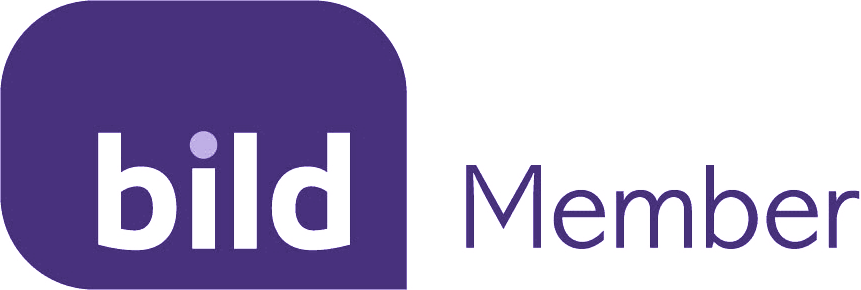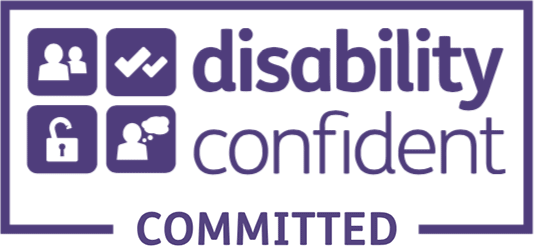Angie's story
All her adult life, Angie* had been told she’d never work. Abused from when she was just a few weeks old, she experienced post-traumatic stress disorder, severe depression, anorexia and self-harm.

Her mental health issues were so significant, Angie was sectioned under the Mental Health Act as a young adult, and was, she says, “written off.”
“I saw my medical notes, and the doctor had written ‘This young lady will never get better’,” she says. “I spent my life believing that.” After finding the strength to escape her abusive background when she was 21 years old, Angie made a new life for herself. Having been told she would never work, she devoted her life to nurturing a family of her own and, at the age of 40, she has five children who she is immensely proud of, 2 boys, aged 17 and 12, and daughters aged 13, 10 and nine.
But despite the overwhelming love she has for her family, Angie began to suspect that she was capable of much more.
“I’d been told since I was 17 that I would never be fit for work because of my mental health,” she says. “I was taught doctors know best, so I accepted it. But things started to change when I was diagnosed with bipolar – it’s something I had always suspected, so when my consultant confirmed it, I embraced the diagnosis. Within a few weeks of taking new medication, I felt like I’d turned a corner.” But although she felt ready for work, Angie was convinced she would be unemployable.
“I had never worked, and I didn’t know where to start,” she says. “I didn’t have a CV, there was the stigma of my mental health issues, and I’m covered in scars. I haven’t self-harmed for over 20 years, but the scars are still there. I struggled to see how anyone would get past that.”
But, determined to give it her best shot, Angie got in touch with our Staffordshire’s Work4You service after seeing a leaflet at her local mental health help group. The service helps people with long-term mental health issues find work, providing practical and emotional support on a one-to-one basis.
“At first, I just wanted a CV,” says Angie. “But when I went for my first appointment with Sam, my employment adviser at the time, I realised that they could give me so much more. For the first time, I was talking to someone who wasn’t talking down to me – we were completely equal. I’d spent my life seeing professionals who were there to assess and judge me, and being labelled with one thing or another, but Sam didn’t do that. She really helped with my confidence - it was so much more than straightforward employment advice.”
Despite having no employment history, with Sam’s help Angie realised that she had skills that employers would find valuable. “She pointed out that I had a lot of transferable skills – I had GCSEs and A-Levels, I’d brought up 5 children and I did 18 months of an Open University course. When we went back through everything, I was amazed at how much I had to put on a CV.”
Armed with a healthy CV, Angie immediately began looking for jobs. “Within 3 weeks, I’d found one that I wanted to apply for – a mental health peer support worker,” she says. “I was very nervous about it, but I just wanted to apply so I could go through the process. I was stunned when I got a phone call to say I’d got an interview.”
After consulting Sam for advice and support, Angie attended a group interview. “I was completely terrified, but Sam had been through a lot of interview techniques with me so I just focused on those,” she says.
2 days later, Angie was called back for a one-to-one interview.
“Within 2 hours, I got a call to say I’d got the job. At the age of 39, after being told I’d never work, I got my first job. It felt amazing - like I’d been accepted as an equal. Until that moment, I’d felt like I wasn’t as good as everyone else.”
A year on, Angie is revelling in her new career. As a peer support worker for young people with mental health issues in residential care, she helps to prepare them for discharge and give them hope for the future. She’s undergoing professional development training and a secondment into nursing, and has even been singled out for an industry award in recognition of how far she’s come.
“I still need support – don’t get me wrong. For the first few months I was constantly looking for reassurance from my employment adviser, and it’s great to know that it’s there for as long as I need it. But it really is an honour and privilege for me to be able to step into these 17, 18, 19 year old lives and be a living example that there is hope. I can tell them I was there at 17 and I truly understand, but look where I am at 40. It’s the greatest pleasure.”
And at home, Angie is thrilled with the example that she is able to give her children. “They look up to me more, especially my eldest daughter. She thought I must still be wounded because I had scars – now she says, ‘You work, so you must be OK.’ I want to inspire them and empower them and show them a different future.
“This is my future, and it feels like the beginning. Here I am: I’ve arrived.”
*Not her real name.
If you found this page useful, please share and help others find it






